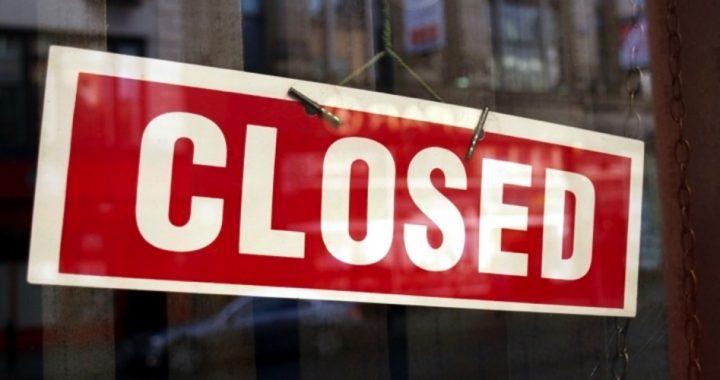
Rural hospitals across the nation are failing at an alarming rate, reports the Washington Post. According to the National Rural Health Association, a Kansas-based group representing about 2,000 small hospitals and other rural healthcare providers, 48 rural hospitals have closed since 2010, and another 283 are in trouble.
ObamaCare, which became law in 2010, is clearly the proximate cause of these failures. The law’s reductions in Medicaid reimbursement rates, high-deductible exchange plans, expensive technological demands, and onerous penalties for readmitting recently discharged patients — combined with lower Medicare reimbursement rates as a result of budget sequestration — are squeezing already cash-strapped rural hospitals.
Yet to place the blame solely on the Affordable Care Act (ACA) would be shortsighted. As the mention of Medicare and Medicaid above indicates, the ultimate cause of the problem is not ObamaCare but decades of unconstitutional federal intervention in the healthcare system. ObamaCare is merely widening the cracks that had already developed over the years, often to the breaking point.
In fact, many of the troubled rural hospitals owe their very existence to Uncle Sam. In 1945, President Harry Truman proposed a wide-ranging federal healthcare program, including attracting healthcare providers to rural areas, building new hospitals, and establishing a national health-insurance program. That last request, fortunately, was shot down by a public that still wasn’t ready for socialized medicine, but the next year, Congress responded to Truman’s call to help rural areas and build hospitals by passing the Hill-Burton Act. That law provided federal grants and guaranteed loans to build or improve nonprofit hospitals.
The law went even further by requiring hospitals to treat patients without regard to their ability to pay for 20 years after receiving funding. In addition, because the law’s backers obviously realized that the act could end up funding hospitals that had no business existing in the first place, it required states to prove that facilities receiving funding were economically viable — a stipulation that “served to prop up hospitals that were economically nonviable, retarding the development wrought by market forces,” observed Wikipedia.
After the passage of Hill-Burton, wrote USA Today, “the number of hospitals soared, creating the backbone of today’s modern health system” — a system built on taxpayer subsidies rather than the free market. The subsidized nonprofit hospitals drove many for-profit and fraternal-society hospitals out of business, causing greater reliance on Washington. Then the feds made matters worse by forcing subsidized hospitals to treat indigent patients for free in perpetuity and requiring them to participate in Medicare and Medicaid, creating an almost fully socialized system. Indeed, USA Today noted that “most” of the rural hospitals’ patients are insured by the government, “If they are [insured] at all.”
Now ObamaCare — the latest attempt to realize Truman’s vision of universal health insurance — is, ironically, bringing down the whole edifice.
The ACA “reduced payments to hospitals for the uninsured,” reported the Post, “a decision based on the assumption that states would expand their Medicaid programs.” However, after the Supreme Court declared state participation in the expansion optional, 23 states declined to participate, leaving hospitals in those states with less funding to treat the indigent. Then again, even states that did expand Medicaid have experienced hospital closures. According to USA Today, Kentucky’s Nicholas County Hospital went under when “the state’s new Medicaid managed-care system brought slower-than-ever reimbursements — which were low anyway because most patients had government insurance.”
Medicare reimbursements have also fallen by two percent since 2013, though that is the result of budget sequestration, not ObamaCare. Of course, hospitals don’t really care why their reimbursements are shrinking; they just know it hurts. “If Medicare is 50 percent of your revenue and you lose two points, it can be a killer,” University of North Carolina health economist Mark Holmes told the Post. (It could be worse: The Department of Health and Human Services’ Office of Inspector General has twice in the last year recommended that some hospitals be dropped from Medicare because of their locations or high claims.)
Then there’s the penalty for readmitting recently discharged patients. Under the ACA, hospitals that readmit “excessive” numbers of certain types of Medicare patients within 30 days of discharge are subject to forfeiture of up to three percent of their entire Medicare reimbursements for the following fiscal year. According to Kaiser Health News, this fiscal year, a record 2,610 hospitals — three-quarters of those subject to the provision — are losing Medicare revenue as a result of readmissions, with 39 of them receiving the maximum penalty. Safety-net hospitals, which include many rural ones, “have been more likely to receive penalties, in part because poor patients face financial and logistical challenges that make them more likely to get sicker after discharge than others, even if the hospital is trying to oversee their recuperations,” penned Kaiser.
Still, reduced payments are better than none, which is what hospitals are getting from many patients who obtained coverage on an ObamaCare exchange. Many plans’ deductibles “are running between $2,500 and $5,000,” and people can’t pay them, the Rural Health Association’s chief lobbyist, Maggie Elehwany, told the Post.
“They set the whole rural system up for failure,” Jimmy Lewis, CEO of Hometown Health, an association representing rural hospitals in Georgia and Alabama, told USA Today. “Through entitlements and a mandate to provide service without regard to condition, they got us to (the highest reimbursements), and now they’re pulling the rug out from under us.”
One more ACA provision hurting rural hospitals is its demand that they “move to costly electronic health records,” said USA Today. For example, Stewart-Webster Hospital in Richland, Georgia, was forced to close because the requirement was going to cost the 25-bed facility $1 million or more to implement.
In short, the latest attempt at socialized medicine, ObamaCare, is accelerating the demise of earlier attempts. Hospitals built where they could not be sustained absent perpetual subsidies, mandates for free (subsidized) care, and federal health insurance were always doomed to the same fate as all socialist enterprises. The federal government was eventually going to run out of money to pay for all these things; ObamaCare is simply slashing the subsidies sooner than expected.
Since Washington has caused the problems, the solution is not, as many are suggesting, to have it intervene further or spend more money to prop up the failing hospitals but to repeal the federal programs that have created the current mess. As USA Today pointed out, “True solutions are likely as varied as the myriad afflicted communities in the nation’s vast rural expanses.” Solutions, therefore, need to be devised in those communities — preferably by turning healthcare over to the free market and charitable organizations — not imposed from D.C. Not only is this the only viable solution; it’s also the only constitutional one.




